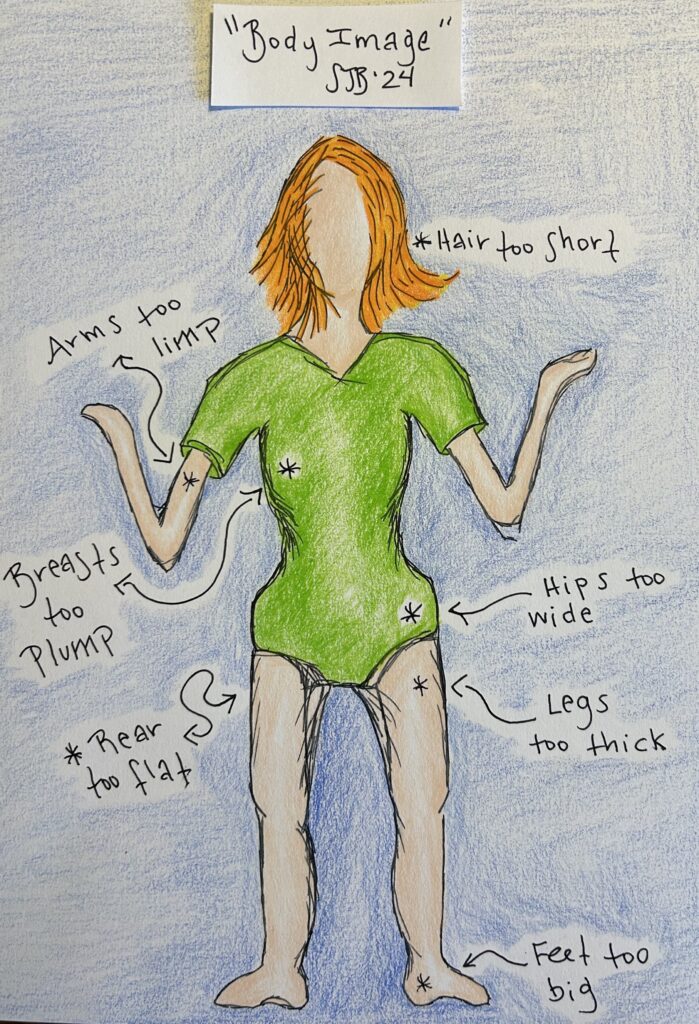
Children have specific body image issues that follow them into adulthood, even if they are unaware of them. When I was younger, I refused to wear constricting clothing of every kind. I wore large t-shirts, colorful skirts and dresses many sizes too big, mismatched socks, and a familiar green dress as often as I was allowed. I never wore anything elastic-related, shorts or pants in general, and especially no denim. My clothes hung from my frame like limp noodles. This was the case for years, until I wore a pair of denim shorts to school for the first time. It was breaking news.
When you are seven years old and shy as a mouse, an enormous spotlight shining directly on your tiny body is mortifying. In my elementary school, every class had to sit apart from the others at lunch. I was fortunate to sit next to Caleb Carter because he liked corn. I prefer bread, so we swapped my corn for his roll consistently. One fateful day, I wore shorts. He noticed, and called the attention of the whole cafeteria.
“Samantha Buice is wearing pants!”
It was a big deal. Following this outburst, it rarely happened again.
Sixth grade approached, and I was self-conscious about my body. I think the reason for the baggy clothes in my past was due to discomfort as well as claustrophobia. When middle school began, I was hiding under an over-sized jacket every day; I was retreating into my shell. Eventually, I ventured out from under my rock, despite the low self-esteem I was harboring.
Observing the media and the people around me, I began to believe that “skinny” was desirable. When I was sixteen, I began dieting for the first time. Most weight-loss programs recommend waiting until age eighteen to begin a regime. I weighed 136lbs and decided I was overweight; I didn’t wait. I ran cross-country in high school; I drank a shake, a diet soda, and ate an apple for lunch every day. When I first developed symptoms of mania, I lost my appetite and met my weight-loss goals. I spent the rest of my life yo-yo dieting and believing there was always something to “fix.”
“They” say that you are your own worst critic. Women, men, teenagers look into the mirror. Many are dissatisfied with their appearance. Something is not “perfect.” In my journey to self-discovery, I have realized that no one is perfect on the outside or on the inside. “Skinny” is not healthy, and “strong” is a powerful description of an experienced traveler. Strength comes from within, without a diet or a mirror, but with reflection.
–SJB